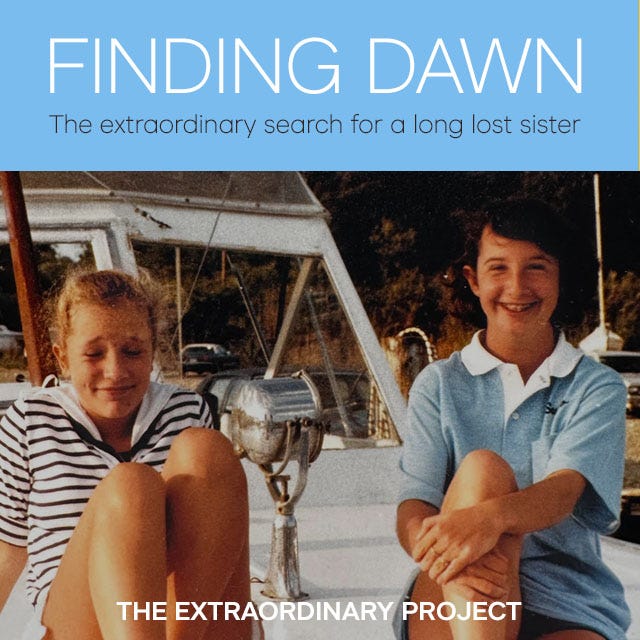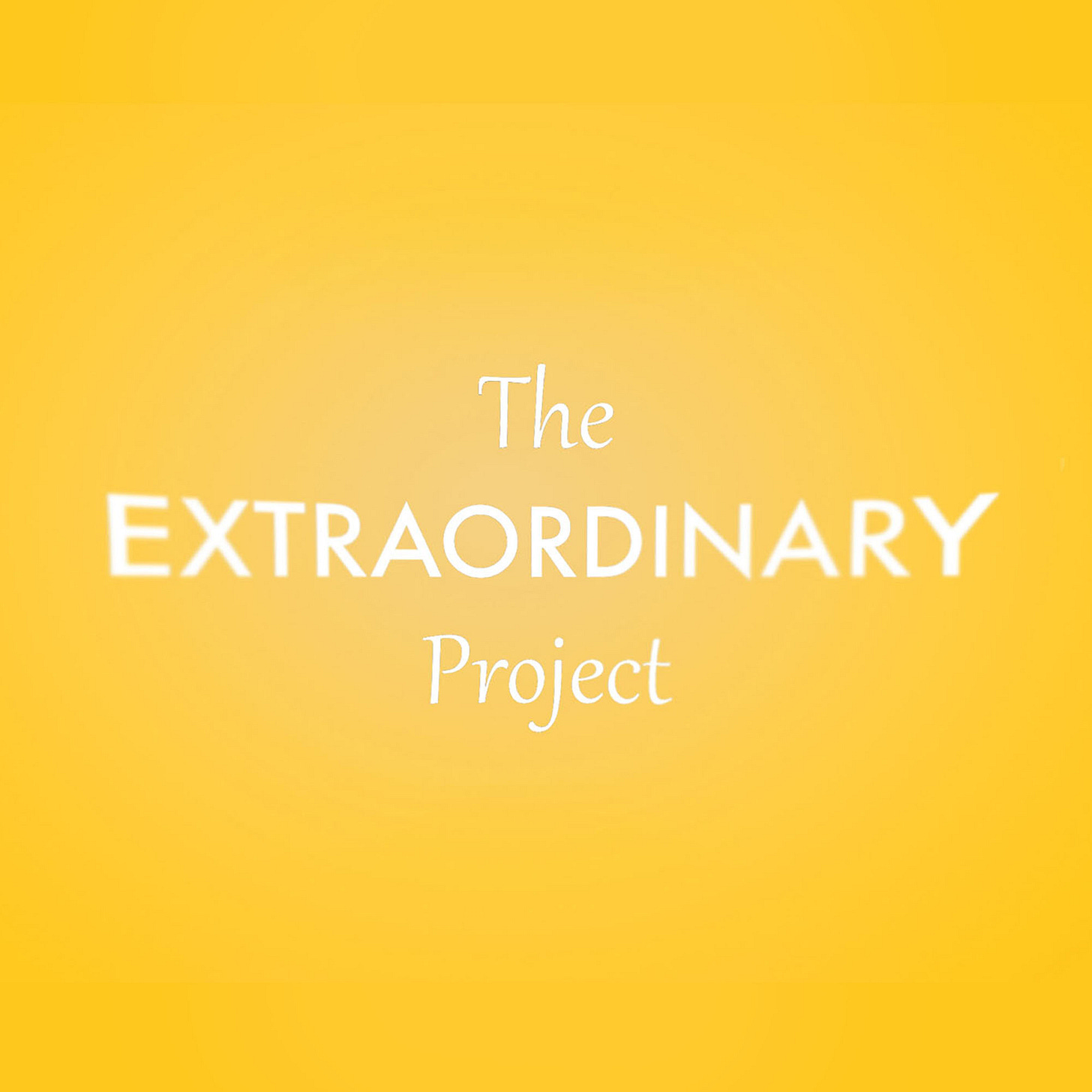A Conversation with Writer and Podcast Creator Suzanne Clores
"I discovered that the categories of strange and unexplained human experiences numbered into the hundreds, and testimonies of those experiences reached into the hundreds of thousands"
On Sunday, February 25, 2 PM PT/5 PM ET, for monthly and annual subscribers, I’m hosting a 1-hour Zoom session on how to prepare and submit your writing to literary journals, agents, book contests, and publishers. If you’d like to attend, register by dropping me a quick note.
On Wednesday, March 13, 6:30-9:30 PM CT, I’ll be teaching an online flash fiction course for the Writers’ League of Texas. More information here.
Suzanne Clores and I met in the mid-2000s when we were both teaching part-time for DePaul University and frequenting the same gym, where Suzanne also taught yoga. There is an aura of mystery and a beautiful calm about her that I’ve always admired. It’s as if she has the phone number to the universe’s secret help line where occasionally she checks in and is reassured that, appearances to the contrary, the world is not scheduled to implode anytime soon.
In her work as a writer and podcast creator, Suzanne is an expert at making the otherworldly both accessible and fascinating. She approaches her subjects with what I’d characterize as an academic point of view, her expertise informing both of the podcasts she’s created, The Extraordinary Project, and most recently, the true crime podcast Finding Dawn. For these series she’s done meticulous research, and each episode is polished and eloquently narrated.

She also writes fiction, creative nonfiction, and journalism. In March 2022, she published an engaging and scrupulously reported article in the New York Times about the Parapsychology Foundation, located in the Greenport section of Long Island. It is an especially good companion piece to The Extraordinary Project.
And now, my interview with Suzanne.
Christine/Bookish: You've published a nonfiction book, Memoirs of Spiritual Outsider, and have written many articles and essays, often about subjects that touch on the otherworldly, as well as created and produced the podcasts Finding Dawn and The Extraordinary Project. What initially interested you in this form?
Suzanne Clores: Great question, because many authors will tell you they thought about pivoting to podcasting for about a minute. Then they realized, correctly, that making audio narrative is an entirely separate craft. I was daunted by the process, although overlaps between prose writing for the page and prose writing for the ear do exist.
In some ways, I still think about my podcast as something I accidentally created while in the process of researching a second memoir. Like it was a byproduct of the early research phase. After a few years, I had gathered dozens of interviews with scientists and practitioners of what I'll call post-materialist phenomena and therapies.
By then I should have been ready to write, but I felt this huge gap between what I knew and what a typical reader would accept. I had learned and integrated so much about paranormal, uncanny, transcendent or mystical phenomena way beyond general knowledge, like I had been given a passport to an alternate reality. I needed to translate the material, make it more approachable, even to myself.
So I called on my very early professional roots in radio documentary, back when NPR was the only game in town and people were predicting the end of audio as a medium by the end of the ‘90s. Ha! I had always liked the form, and suspected that telling a narrative, documentary-style story for the ear would help me learn how to write about these phenomena which, as they do with most, create paradoxes for me, and force me to confront my doubts and anxieties about the strange and inexplicable.
In the process I also found that listening to a well-produced podcast can provide an intimate, immersive experience that rivals reading. Because someone's voice is literally in your ear.
CS: I found the 12 episodes of The Extraordinary Project Podcast riveting (landing page description: "Extraordinary experiences happen to us all. Why don't we understand them or talk about them more? A journey into the stories where the super personal meets the supernatural.") Where did the idea for this series originate?
SC: During that research period for my second memoir, I discovered that the categories of strange and unexplained human experiences numbered into the hundreds, and testimonies of those experiences reached into the hundreds of thousands: from After Death Communication to Psychokinesis to Channeling out of body beings to Humanoid and UFO sightings.
These are all very weird events that can strike anyone at any time, neurotypical people as well as those closer to psychosis; they occur on a spectrum, and only a tiny section of that spectrum is discussed in polite society. So I grew intrigued with both the phenomena and the taboo around them. One day it occurred to me that a human voice telling stories about the extraordinary, if told frequently and plainly enough, could bypass people's doubts by reaching an emotionally curious space. I thought the best way to do so was by whispering thoughtful audio essays into their ear, like a favorite weird friend might do.
CS: Finding Dawn features EL, a remote viewer (a type of investigative psychic) who is also a podiatric surgeon in San Francisco. She was able to determine what very likely happened to the eponymous Dawn, who disappeared on her way home from work one day in 1989 in Bryn Mawr, PA. In The Extraordinary Project, you feature an interview with E.L. too. Do police investigations make use of remote viewers more often than most of us know? Are they usually a last resort when a case is going cold or does this vary?
SC: It varies. Not every Remote Viewer is psychic, but many psychics can Remote View. Since the term, "Remote Viewer" was coined to describe a particular class of trained sensory intelligence collectors, "Viewers" have been used by law enforcement, district attorneys, intelligence agencies and other official branches of government, usually in secret. Corporations hire them for forecasting or risk assessment; families use them for finding lost loved ones.
It's an unusual modality but reliable for information gathering. EL has a wonderful ability to describe her process. She works quickly and effectively, and has worked on missing persons cases all over the world. It's been wild and wonderful to work with her on two projects now.
CS: What has the response been to Finding Dawn and its revelations from listeners?
SC: I've had a range of responses. They really run the gamut of the emotional spectrum: words like fascinating, devastating, disturbing, deeply sad, and cool to cite a few. It's a strange story that seems to have struck a few different chords, because it's both a true crime mystery and a deeply spiritual immersion into grief and loss. I felt compelled to feature Cath Mozino's life as a searching sister, both the toughness and the vulnerability required to play that role every day.
One interesting outcome that I'm very excited about is that I've been invited to give a talk this summer at the Lilydale Symposium, which is going to be a blast. I'll be discussing the craft behind Finding Dawn, working with remote viewers, and interpreting the phenomena into a nonfiction narrative.
CS: What are you working on now?
SC: Believe it or not, after three podcast seasons I have pivoted back to writing prose: finally that second memoir! It's partly about making The Extraordinary Project as well as my fascination with the 20th century trance medium, Eileen J. Garrett, whom I wrote about for the New York Times about two years ago. I'm also working on a story collection that explores the sinister side of the Midwest from an outsider's perspective. It's great to be writing books again, but I won't be out of audio forever.
**
Creator bio: Suzanne Clores is the author of Memoirs of a Spiritual Outsider and the creator of Finding Dawn and The Extraordinary Project Podcast, an exploration of our relationship to otherworldly encounters. Her work has appeared and aired on NPR, The New York Times, Salon, Elle, The Rumpus, and many other outlets. She lives in Evanston, IL with her family.






I'm really enjoying them. Brava!
I've already listened to two!